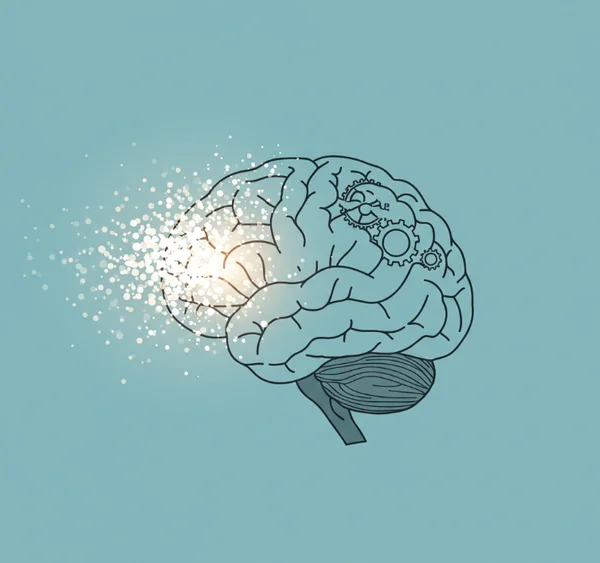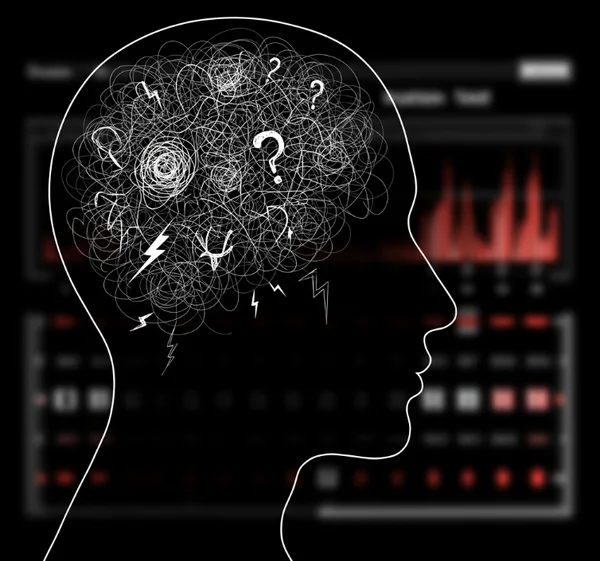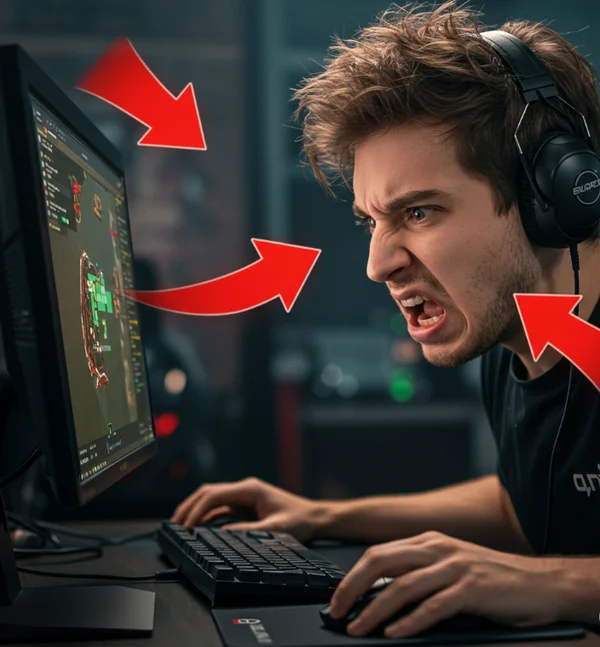Why Is My Reaction Time Slow? Common Factors Explained
May 23, 2025 | By Marcus Adler
Ever taken a reaction time test and wondered, Why is my reaction time so slow? You're not alone. Many of us have experienced moments where our reflexes didn't feel as sharp as we'd like. A slow reaction time can be frustrating, whether you're gaming, driving, or simply want to feel more alert. The good news is that understanding the potential causes is the first step towards addressing it. Our site offers a simple way to measure your reaction speed by responding to a color change from red to green. This article explores the common factors that might be contributing to a less-than-optimal reaction time.
Key Factors Affecting Your Reaction Time: What Slows You Down?
Several elements can influence how quickly you respond to stimuli. It's rarely a single cause, but rather a combination of physiological, psychological, and even environmental aspects. Let's delve into some of the most significant factors affecting reaction time.
Understanding Brain Processing Speed and Age (Reaction Time Age)
One of the most well-documented things that affect reaction time is age. As we get older, our brain processing speed naturally tends to decrease slightly. This doesn't mean a drastic decline for everyone, but subtle changes in neural pathways and cognitive processing can lead to a modest increase in reaction time.
-
Neurological Changes: Over the lifespan, there can be minor alterations in nerve conduction velocity and synaptic efficiency.
-
Typical Variations: While individual differences are vast, studies often show average reaction times gradually increasing from our late 20s onwards. However, a healthy lifestyle can mitigate some of these age-related changes.

Do you know what affects reaction time more as you age? Often, it's a combination of these subtle neurological shifts.
The Crucial Role of Sleep in Reaction Time (Reaction Time Sleep)
Never underestimate the power of a good night's sleep! Reaction time sleep deprivation is a major culprit when it comes to sluggish responses. When you're tired, your brain's ability to process information and make quick decisions is significantly impaired. This is one of the most common causes of slow reaction time.
-
Cognitive Impairment: Lack of sleep directly impacts attention, alertness, and decision-making speed. The effects of tiredness are profound.
-
Restorative Processes: Quality sleep allows your brain to consolidate memories and clear out metabolic byproducts, which is essential for optimal cognitive function, including quick reflexes.

If you're consistently asking, "Why is my reaction time so slow?" take a hard look at your sleep patterns. You can check your reaction time regularly to see how sleep impacts your score.
Mental State: Attention, Stress, and Fatigue (Mental Factors Slowing Reaction)
Your mental state plays a pivotal role. Mental fatigue reaction time is a real phenomenon. If your mind is elsewhere, stressed, or simply tired, your reactions will likely suffer.
-
Focus and Concentration: Distractions and trying to multitask can divide your attention, making it harder to respond quickly to a specific stimulus. Maintaining good focus and concentration is key.
-
Psychological Impact of Stress: High levels of stress or anxiety can create "mental noise," interfering with your ability to process information efficiently. This psychological impact can certainly contribute to a poor reaction time.
-
Brain Fog Causes: Prolonged mental exertion without adequate breaks can lead to mental fatigue, often described as "brain fog," which directly slows down your reaction speed.

Physical Health and Lifestyle Choices (Health Conditions Affecting Reaction Time)
Your overall physical health and daily habits are significant factors affecting reaction time. Certain medical reasons for slow reaction exist, and lifestyle choices also make a big difference.
- Underlying Health Conditions: Some neurological or metabolic conditions can impact nerve function and cognitive processing. (Note: This article is for informational purposes and not medical advice. Consult a doctor for health concerns.)
- Medications and Substances: Certain medications have side effects that can slow reaction times. Alcohol, even in small amounts, can impair reflexes, and while caffeine might provide a temporary boost, withdrawal or excessive intake can have negative drug side effects on reaction.
- Lifestyle Impact on Reflexes: A balanced diet, proper hydration, and regular physical activity generally support good cognitive function and, by extension, quicker reactions. Poor lifestyle impact on reflexes can be substantial.
Technology and Environmental Factors (Input Lag & Environmental Impact on Reaction Time)
Sometimes, the causes of slow reaction time might not be entirely you, but your equipment or surroundings. This is especially relevant for gamers or anyone using digital interfaces for reaction time tests.
-
Understanding Input Lag: Input lag from your monitor (monitor response time), mouse (mouse delay), or even internet connection can add precious milliseconds to your recorded time. This technology impact on reaction time is often overlooked.
-
Testing Environment Setup: A noisy, poorly lit, or uncomfortable testing environment setup can be distracting and negatively affect your performance on any human benchmark test.

Are you wondering what slows down reaction time when you're using your computer? It could very well be input lag.
Can You Improve Slow Reaction Time? Taking Action
The encouraging news is that while some factors like age are less modifiable, many things that affect reaction time can be positively influenced. Improving sleep hygiene, managing stress, staying physically active, and ensuring your testing equipment is optimal are all actionable steps. Specific reaction time training exercises can also help sharpen your reflexes. Explore tips on our site for improving your reaction time.
Identifying Your Slow Reaction Time Triggers
Understanding why is my reaction time so slow? involves considering a multitude of factors, from your age and sleep quality to your mental state and even the input lag from your tech. By recognizing these potential slow reaction time triggers, you can take informed steps to optimize your responses. Remember, your reaction time isn't static; it can fluctuate. The best way to monitor these changes is to regularly use a reliable test.
Frequently Asked Questions about Slow Reaction Time
-
Why is my reaction time so slow suddenly?
If you notice a sudden significant decrease in your reaction time, it could be due to acute factors like extreme fatigue, high stress, illness, or new medication. If it's a persistent and unexplained change, consulting a healthcare professional is advisable. You can always check your reaction online to track these changes.
-
How much does genetics affect my reaction time?
Genetics can play a role in establishing a baseline for your potential reaction time, influencing things like nerve conduction speed. However, environmental factors, training, and lifestyle choices significantly impact your actual, measurable reaction time. So, while there's a genetic component, it's not the sole determinant of a slow reaction time.
-
Can a bad internet connection make my reaction time test result slow?
Yes, for online tests like ours, a poor or unstable internet connection can introduce delays (latency) between when the stimulus appears on your screen and when your click is registered by the server, potentially leading to a higher (slower) recorded reaction time. This is a form of input lag. Test your reaction speed here.
-
What's a quick way to check if it's my PC causing slow reaction times?
Try the reaction time test on a different device or a different internet connection if possible. If your scores are consistently better elsewhere, it might indicate an issue with your PC's performance, input lag from peripherals (mouse, monitor), or software conflicts. Also, ensure your browser is up to date and not overloaded with extensions.
-
At what point should I be concerned about my reaction time?
While there's an average reaction time, significant deviations or a sudden, unexplained worsening of your reaction speed, especially if accompanied by other cognitive or physical symptoms, warrants a discussion with a healthcare provider. Our online reaction test is a fun tool for self-assessment, not a diagnostic instrument.